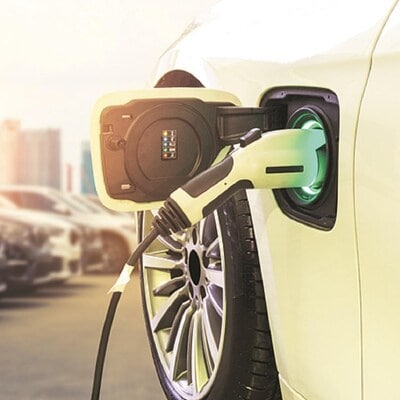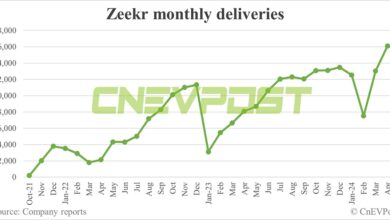EV sales decline due to incentive cuts, election, and hybrid shift | Economy & Policy News

Sector experts suggest that the sharp decline could be due to a combination of factors such as changes in government policies, customers shifting interest towards hybrids, and general elections
Nitin Kumar New Delhi
The electric vehicle market in the country saw a decline in sales for May 2024 compared to the same month last year. However, there was a modest recovery compared to the previous month.
In May 2024, according to data from the Vahan portal of the Ministry of Road, Transport and Highways, total EV sales amounted to 123,107 units, a decrease from the 158,459 units recorded in May of the previous year, which also marked the peak sale of the calendar year.
Click here to connect with us on WhatsApp
In May, out of the total 123,107 units sold, two-wheelers accounted for approximately 51.7 per cent of total sales, three-wheelers comprised roughly 42.5 per cent, passenger cars made up around 5.3 per cent, and buses represented about 0.2 per cent. The remaining vehicles, including omni, agricultural vehicles, goods carriers, and others, collectively constituted less than 0.4 per cent of total sales.
The reason
Sector experts suggest that the sharp decline could be due to a combination of factors such as changes in government policies, customers shifting interest towards hybrids, and general elections.
“Consumers, especially in fleet and business sectors, often postpone their purchase decisions until after elections. Manufacturers also prefer to ramp up investments once a new government is established. Additionally, the recent decline in sales could be attributed to the end of FAME incentives and a shift in customer preference towards hybrids,” said Puneet Gupta, director, S&P Global.
Industry executives are concerned that the anticipated increase in sales could be delayed if the government does not extend the deadline of its current Electric Mobility Promotion Scheme 2024 (EMPS 2024) or introduce the third phase of FAME.
“If the government discontinues incentives for the EV industry, sales are likely to decline in the short run, at least until the production-linked incentives scheme for the automobile sector reaches its incentive disbursement stage,” said an industry player. The incentives under the Auto PLI will start from April 1, 2025.
On March 13, the Centre also announced EMPS 2024. It is aimed at fostering the sale of electric two-wheelers (e2W) and three-wheelers (e3W).
Under this scheme, the Ministry of Heavy Industries earmarked Rs 500 crore to support around 400,000 vehicles over four months.



